×


We have detected your country as:
Please click here to go to the USA website or select another country from the dropdown list.
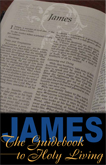
{image_1}
Have you ever struggled with the desire to make yourself a better, more successful person? Or perhaps with a difficult relationship? Have you wondered how to cope with a challenging situation such as the loss of your job or stress in the workplace? Or asked yourself who you really are and what your purpose reallyis in life? Well, if you have, you are not alone. These are the four main categories that the current spate of self-help books deal with, and it seems people all over the globe are seeking the same answers. The self-help craze has become big business, with this genre selling somewhere between US $8 and $10 billion per year in America alone, over US $1 billion of that being specifically what is called “Christian self-help.”
Continue Reading »
{image_1}{image_2}
Once a year the staff of Bridges for Peace in Israel goes away for a three-day prayer retreat. It is a special time of meeting with God—a moed (appointment, set-apart time) when we seek the Lord for His direction for the future. In the month before the retreat, we concentrate on preparing ourselves spiritually for this special time and encourage each person to search their heart. In our devotional times, we concentrate on repentance and seeking God. The Friday before we leave for the retreat, the entire management team spends several hours praying for the Lord’s direction and blessing for the staff. This time of preparation is a vital part of the retreat, enabling our team to come before the Lord with a clean heart.
Continue Reading »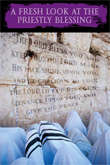
{image_1}
“Speak to Aaron and his sons, saying, ‘This is the way you shall bless the children of Israel. Say to them: “The LORD bless you and keep you; the LORD make His face shine upon you, and be gracious to you; the LORD lift up His countenance upon you, and give you peace”’” (Num. 6:23–26).
Continue Reading »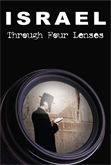
{image_1}
In Romans 9–11, Paul, Jewish apostle to the Gentiles, treats his mostly non-Jewish audience to the most fully developed theological passage in all of Scripture. And what is he talking about? Israel and the Jewish people, of course! Perhaps there is some importance the Gentile reader of today should ascribe to so weighty a work. Yet, it persists that this very passage is one of the most ignored and misunderstood parts of the Bible. Perhaps this is because there is a mystery going on—the mystery of amazing Israel.
Continue Reading »
{image_1}
“Oh, fear the LORD, you His saints! There is no want to those who fear Him. The young lions lack and suffer hunger; but those who seek the LORD shall not lack any good thing.” Psalm 34:9–10
The Fear of the Lord is a complex concept that occupies a unique prevalence in both the Old and New Testaments. Christian commentators and Jewish sages have spoken of this idea perhaps more than any other, clearly identifying it as a fundamental component of a true relationship with the Almighty One. Charles Spurgeon spoke of it as the centrality of the Christian experience. The Talmud (rabbinic commentary on Jewish tradition and the Hebrew scriptures) says, “a man who possesses learning without Fear of the lord is like the man who has been entrusted with the keys of an inner court but not with the keys of the outer court; how is he to enter?” If we are to love the Lord as He deserves to be loved and sanctify His name through our lives, a careful look at what the Bible and the sages say about the Fear of the Lord is certainly in order.
Continue Reading »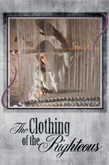
{image_1}
In our present-day world, clothing pretty much defines us. It certainly did in the Elizabethan Era in England. Laws governed what kind of fabric and what colour a person could wear. A person’s dress immediately identified their status in society, who was royalty and nobility and who was not, and the consequences were severe if caught wearing something inappropriate.
Continue Reading »
{image_1}
I have never met an Israeli who didn’t desire peace. Whether on the right or the left (politically), all have a deep desire for peace. While they may not agree on how to get there, I am convinced that a vast majority of Israelis would willingly lay down arms, if they felt that genuine peace was a reality. I have lived in Israel for nearly 20 years and have never experienced real peace here. There have been times of relative quiet, but never a cessation of violence.
Continue Reading »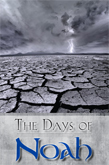
{image_1}
Have you ever considered that the violence, immorality, and uncertainty that surround us today are really nothing new? They have been the unfortunate companions of humanity throughout history. The Bible tells the recurring story of God’s judgment on such behaviour as mankind repeatedly slipped into depravity. There are, however, certain generations that have the dubious distinction of being singled out by the writers of Scripture as the worst of the worst. Noah’s was such a generation.
Continue Reading »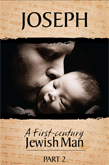
{image_1}
As Christians, we believe the Bible has every answer for every situation we might encounter in our lives. It is a comprehensive handbook for living in relationship with God. But the writers of the Bible, Jewish men who lived millennia ago, often wrote in what we might call biblical shorthand. Much is left unsaid because it was common knowledge in the day in which the writers lived.
Continue Reading »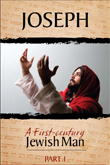
{image_1}
Many of the characters mentioned in the Bible are shrouded in mystery. Although we recognise that God has placed them there to fulfil specific purposes, we often know little about who they really were. Joseph, the step-father of Yeshua (Jesus) is certainly one of those individuals. A search for information about him reveals little, and the most common phrases encountered are: “little is known” or “little can be known” about him. Truthfully, however, much can be known…if we know where to look to find the information. In this two-part teaching, we will dig into the Scriptures, history and Jewish tradition, examining his life on every level. In part 1, we will look at him as a first-century man and husband. In Part 2, we will discuss his role as a father. Through it all, Joseph will emerge from the shadows as a very real and vibrant man, and an example for us all.
Continue Reading »All logos and trademarks in this site are property of their respective owner. All other materials are property of Bridges for Peace. Copyright © 2025.
Website Site Design by J-Town Internet Services Ltd. - Based in Jerusalem and Serving the World.